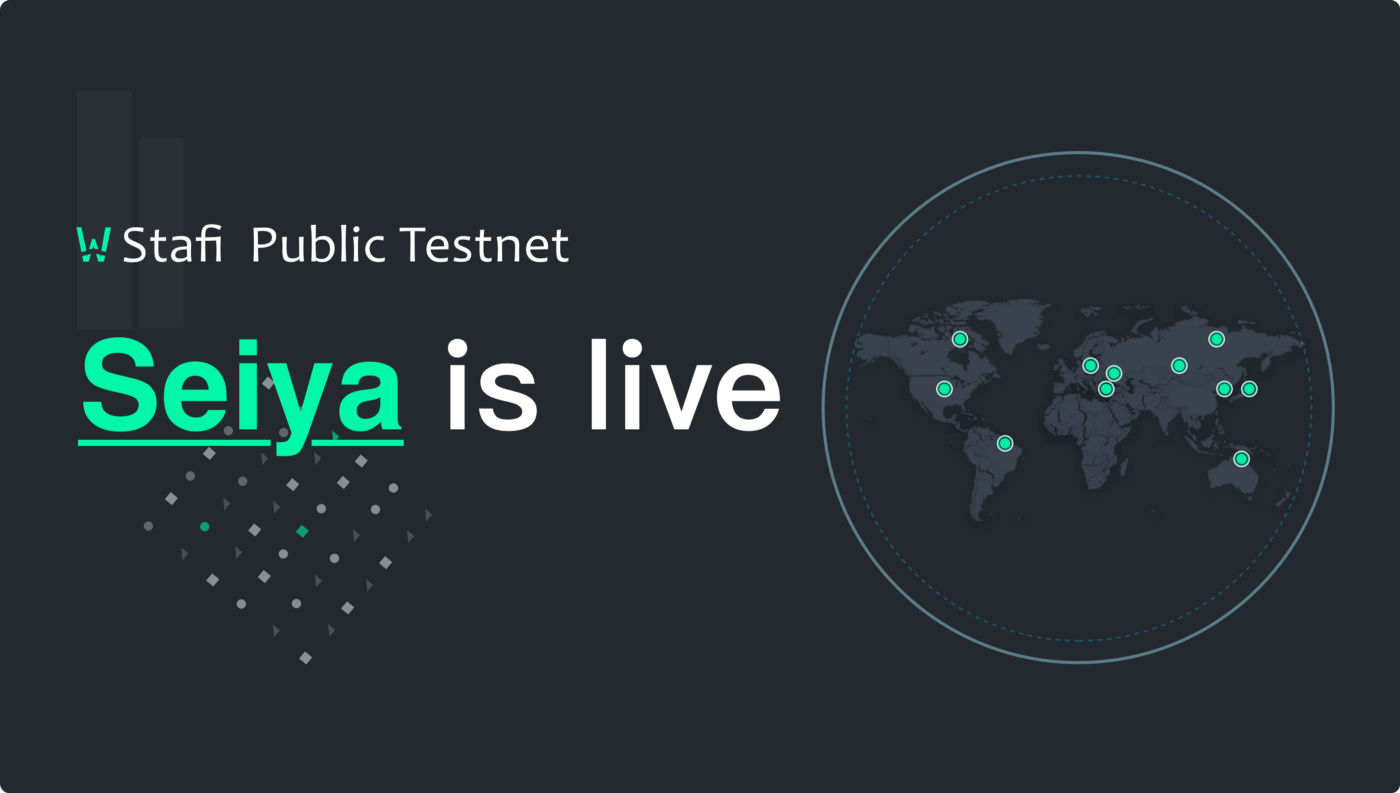



Please check the Stafi node operation document if you want to join the Stafi as a node operator. When the open testnet is stable, we will enter the phase of the incentivized testnet. It is recommended to familiarize yourself with the public testnet first to get a lead in the subsequent incentive testnet.
Service providers that have provided validation services on various PoS networks are recommended to join Stafi’s network to help all Stakers with the issuance of Staking derivatives! In addition to the original PoS chain incentives, Stakers will also be rewarded by Stafi.
If you want to learn more about running a validator node on Stafi network, you should join our validator community, and we’d love to hear your thoughts about the testnet. There are many intricacies and balances in the design of the validator incentive mechanism, and we look forward to iterating the system with the help of the community. Join us on Telegram: t.me/stafi_protocol
Stafi is the first DeFi protocol unlocking liquidity of staked assets. Users can stake PoS tokens through Stafi and receive rTokens in return, which are available for trading while still earning staking rewards. FIS is the native token on Stafi Chain. FIS is required to provide security to the network by staking, pay for transaction fees on the Stafi chain, mint & redeem rTokens.
Rewards & Slashing
Anyone can apply to become a validator candidate. As for the rewards, all incumbent validators have the same weight to produce blocks and under random algorithms, all of them have almost the same chance to be rewarded. That means validators with a lesser FIS stake can earn more FIS rewards.
The inflation rate of FIS is 10% in the first year. The rewards for a validator are determined by Staking rate. Initially, 50% will be set as a benchmark. For validators with a staking rate below 50%, an 10% annual interest rate will be set up. For those higher than 50%, the rewards will be below 10%. In general, the rewards are in reverse proportion to the staking weight.
The slashing mechanism in NPoS is similar to other PoS projects. For those who are offline (or unresponsive) too often, or do such evil as double-signing, their collateral will be confiscated — slashed. The slashed amount will include FIS belonging to the nominators and the Slash severity is determined by the exact case. Check here for the detailed Slash ratio. The validators with a high staking rate can attract nominators by their strength to earn higher delegation.
Lockup Period for FIS: 14 days
Users can engage in NPoS by Staking FIS on Stafi. They can earn inflationary rewards for their “work”. However, in order to prevent malicious activity, staked FIS must be locked for a period of time. It takes 14 days from the initiation of unlocking to redeem FIS back. Unlike other PoS chains, Stafi Protocol will create SC to unlock Staked FIS so that users can trade rFIS directly to obtain liquidity even within the lock period of FIS.
How Many Validators Are in Need?
Stafi will first open 60 to 125 validators positions and then gradually recruit more. The upper limit of that number has not yet been determined, and the decision must be made after weighing network security and consensus efficiency. (The more validators, the higher the network security, and the fewer validators, the higher the consensus efficiency)
The most common way to run a validator is through a cloud server. You can choose your favorite VPS service provider and operating system. In this guide, we will use **Ubuntu 18.04**, but the settings for other platforms are similar.
Stafi provides a basic hardware standard for your reference. It is recommended that a validator's hardware reaches this standard to ensure that they can process all blocks in a timely manner. This is not a hard minimum, but if you decide to run with hardware below this standard, you may experience performance issues.
Recommended configuration
System: Linux or Macos, Ubuntu 18.04
CPU: 4 cores, Intel Core
Memory: 8G
Hard disk: 500G
Minimum configuration
System: Linux or Macos, Ubuntu 18.04 is recommended
CPU: At least 2 cores, Intel Core
Memory: 8G
Hard disk: at least 200G, regularly evaluated

















